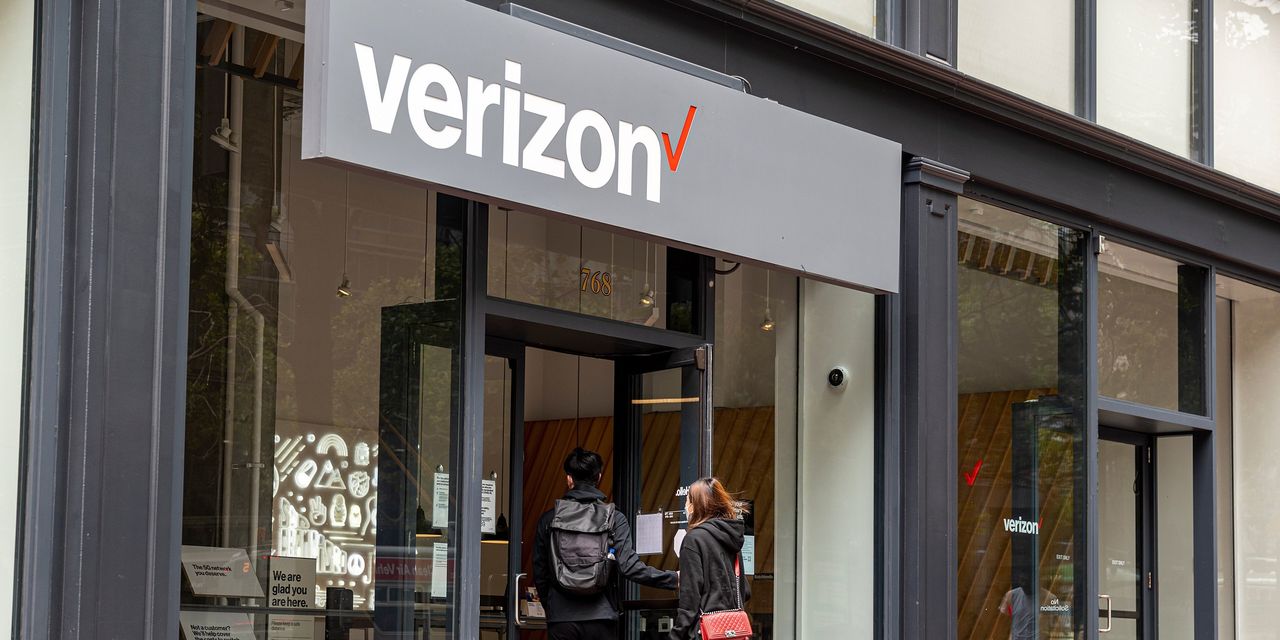
Verizon Communications Inc. said limits on its 5G expansion haven’t hurt its ability to connect customers, though the wireless company is still waiting for firm government rules on where its signals can reach in the months ahead.
Chief Executive Hans Vestberg said Tuesday that the company already covers 95 million people with the high-speed service despite temporary cell-signal limits near airport runways. The cellphone carrier and rival AT&T Inc. have faced pushback from U.S. air-safety regulators in recent months as they expand their fifth-generation networks to include new C-band frequencies, which provide faster internet speeds and more network capacity to address dense clusters of subscribers.
“We have the highest assurance from the White House that this will be resolved very soon,” Mr. Vestberg said in a conference call with analysts. “It doesn’t impact our business at the moment, but clearly we want this to be resolved as soon as possible, so the pressure is on everybody involved to make this fix.”
Verizon said about a third of its core customer base had already upgraded to 5G-capable phones. The company last year committed to pay about $53 billion for licenses and associated auction costs to secure the C-band airwaves in question, which form the cornerstone of its 5G strategy.
The company said Tuesday that additional spending on C-band network improvements will reach $5 billion to $6 billion this year, the biggest chunk of an estimated $10 billion budget through 2023.
Mr. Vestberg’s comments came as Verizon reported a slightly higher fourth-quarter profit from the prior year as it replaced revenue lost from its digital-media spinoff with new customers under pay-as-you-go wireless giant TracFone.
Verizon, the largest mobile network operator in terms of subscribers, also added 558,000 postpaid phone connections in the December quarter, a slower pace of growth than competing carriers. AT&T earlier this month reported preliminary results showing a net gain of 880,000 postpaid phone connections in the final three months of 2021, while T-Mobile US Inc. added 844,000.
Cellphone carriers often push customers toward postpaid agreements, which generally bill them a month in advance and represent a reliable stream of revenue. However, Verizon is also seeking to grow its prepaid business as the wireless industry matures.
It counted a small percentage of its subscribers on prepaid billing plans before late last year, when the company closed its $6.25 billion purchase of TracFone Wireless. Just over one-fifth of Verizon’s consumer wireless retail connections were prepaid at the end of December.
The deal also helped stabilize revenue after the decision earlier in 2021 to sell most of AOL, Yahoo and other digital-media properties to private-equity firm Apollo Global Management Inc. for $4.25 billion. Verizon kept a 10% stake in the online unit.
In the fourth quarter net income attributable to Verizon rose to $4.61 billion from $4.59 billion a year earlier. On a per-share basis, profit was flat at $1.11.
Quarterly revenue slipped 1.8% to $34.07 billion, reflecting the divestiture of the media business. Wireless-service revenue grew 6.5% to $17.76 billion.
Verizon said its total connections—a figure that includes connected devices like smartwatches and tablets but excludes phone service resold through partners like Charter Communications Inc. and Comcast Corp. —ended the year at 115.4 million. That tally reflected roughly 20 million new TracFone customers added to Verizon’s rolls.
The prepaid unit shed 85,000 customers during the most recent quarter, however, reflecting stiff competition. The company said about 52,000 of those net customer losses came from TracFone brands, and blamed smartphone shortages and competition from carriers’ promotions on postpaid plans.
“Over the past year or so, the economy’s been pretty good,” finance chief Matt Ellis said in an interview. “That’s an environment where traditionally you will see pressure on prepaid volumes,” though the business continued to grow its service revenue.
In the current year, Verizon expects wireless-service revenue to grow at least 3% excluding the impact of the TracFone acquisition.
Verizon shares slipped about 0.1% Tuesday amid declines in major U.S. indexes.
Corrections & Amplifications
Verizon added 558,000 postpaid phone connections in the December quarter. An earlier version of this article incorrectly said it added 553,000. (Corrected on Jan. 25)
Write to Drew FitzGerald at [email protected]
Copyright ©2022 Dow Jones & Company, Inc. All Rights Reserved. 87990cbe856818d5eddac44c7b1cdeb8








